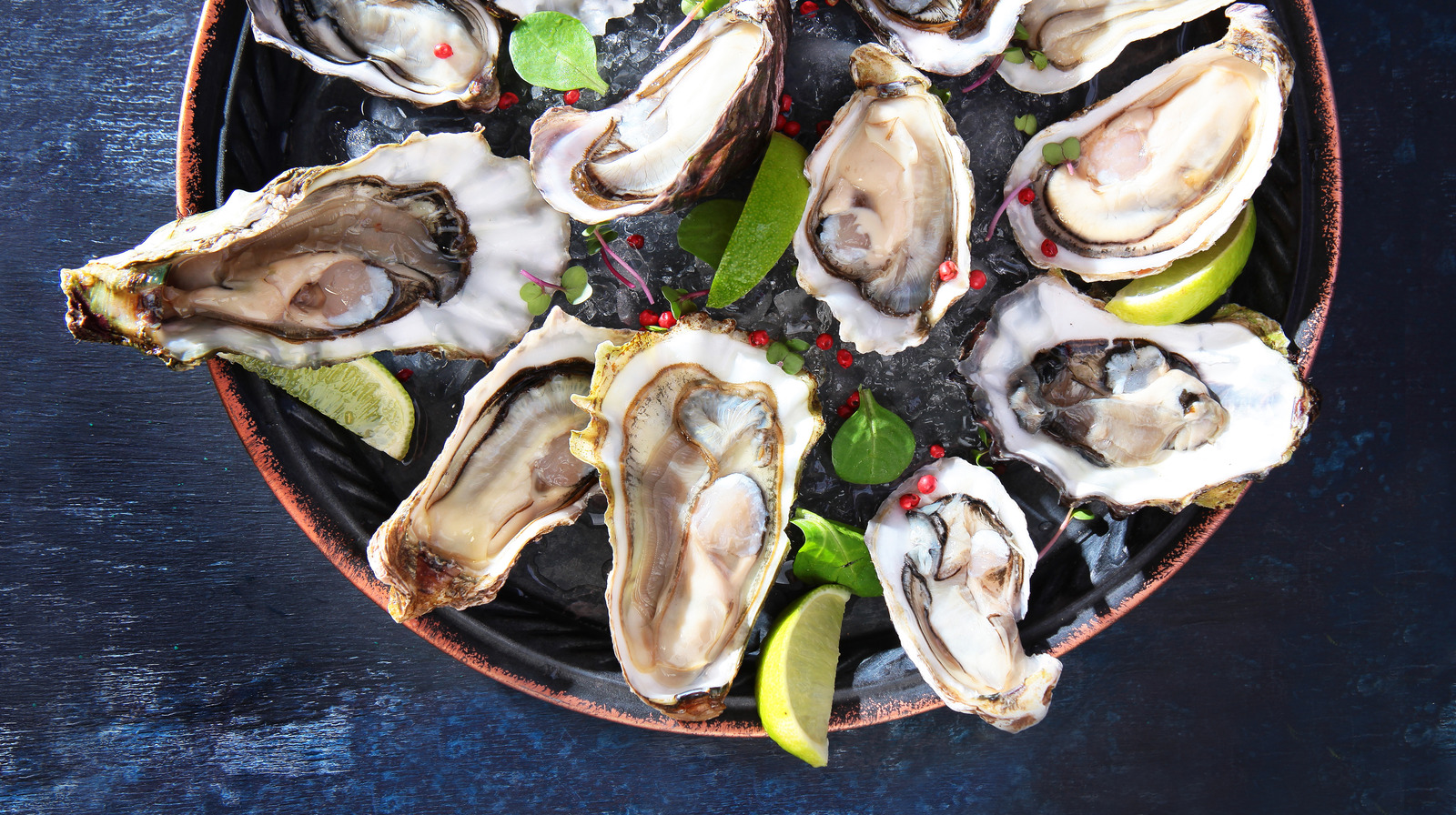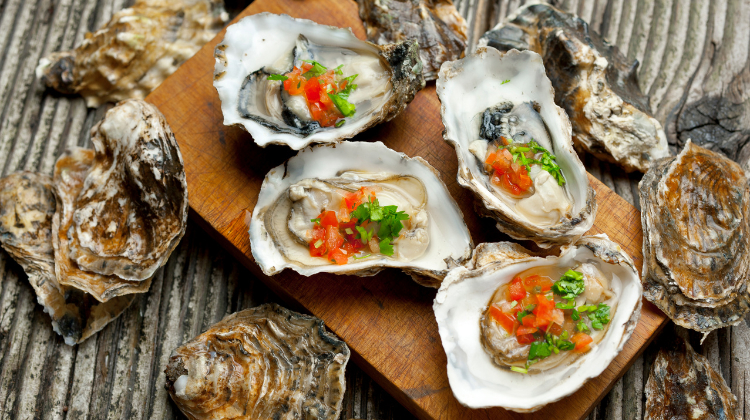can you eat oysters while pregnant
Can You Eat Oysters While Pregnant?
During pregnancy, many women have concerns about their diet and which foods are safe to consume. Oysters, being a popular seafood choice, often raise the question of whether they are safe to eat during pregnancy. In this article, we will address the common questions and concerns regarding eating oysters while pregnant.
1. Are oysters safe to eat during pregnancy?
Expert Answer: Yes, oysters can be safe to consume during pregnancy when they are handled and cooked properly. However, there are certain precautions to keep in mind.
- Raw oysters should be avoided due to the risk of foodborne illnesses, such as listeria and salmonella.
- Pregnant women should only consume oysters that have been cooked thoroughly to kill any potential bacteria or viruses.
A study conducted by the American Pregnancy Association suggests that consuming cooked oysters can provide essential nutrients like zinc, omega-3 fatty acids, and vitamin B12, which are beneficial during pregnancy.

2. What are the risks of eating raw oysters while pregnant?
Expert Answer: Eating raw oysters during pregnancy can pose potential risks to both the mother and the baby.
- Raw oysters may be contaminated with harmful bacteria like listeria or salmonella, which can cause foodborne illnesses.
- These infections may lead to severe symptoms, including fever, diarrhea, dehydration, and in some cases, can even be life-threatening for the fetus.
- Pregnant women are more susceptible to infections due to changes in their immune system during pregnancy, making them more vulnerable to consequences of consuming raw or undercooked foods.
It is crucial to prioritize food safety and avoid eating raw oysters to minimize these risks.

3. How should oysters be cooked before consuming them during pregnancy?
Expert Answer: Cooking oysters thoroughly is important to eliminate any potential harmful bacteria and ensure they are safe to consume during pregnancy. Here are some guidelines for cooking oysters:
- Steam or boil oysters until their shells open, which indicates they are fully cooked.
- Discard any oysters that do not open during the cooking process, as they may be unsafe to eat.
- Avoid consuming oysters that are undercooked or have a raw appearance, as they may still contain harmful bacteria.
- Cooked oysters should reach an internal temperature of 145°F (63°C) to ensure safety.
By following these cooking methods, you can greatly reduce the risk of foodborne illnesses associated with consuming oysters.
4. Are there any nutritional benefits to eating oysters during pregnancy?
Expert Answer: Yes, consuming oysters during pregnancy can offer various nutritional benefits:
- Oysters are an excellent source of zinc, which is important for fetal growth and development, as well as supporting the immune system.
- They are also rich in omega-3 fatty acids, which are beneficial for brain development and can help reduce the risk of preterm birth or low birth weight.
- Oysters contain vitamin B12, which plays a vital role in healthy blood formation and neurological development of the baby.
It's important to note that oysters should be included as part of a balanced and varied diet to ensure a wide range of nutrients for both the mother and the baby.
5. Can eating oysters while pregnant improve your baby's brain development?
Expert Answer: Consuming oysters during pregnancy can contribute to better brain development in the baby due to their high omega-3 fatty acid content.
- Omega-3 fatty acids, particularly DHA (docosahexaenoic acid), are essential for the development of the baby's brain and eyes.
- These fatty acids are linked to improved cognitive function, better vision, and reduced risk of developmental disorders.
- However, it's important to note that while oysters are a good source of omega-3 fatty acids, they should be consumed as part of a well-rounded diet that includes other sources of DHA, such as fish and fortified products.
Consulting with a healthcare provider or nutritionist can help ensure you are meeting your nutritional needs during pregnancy.
6. Can consuming oysters cause allergies in the baby?
Expert Answer: While allergies can occur in babies, consuming oysters during pregnancy does not directly cause allergies in the baby.
- Oysters are not commonly associated with allergenic reactions.
- However, it's important to note that some individuals, including babies, may have allergies to seafood in general.
- If you have a family history of seafood allergies or if you experience any allergic symptoms after consuming oysters, it is advisable to consult with a healthcare professional to assess the situation.
Food allergies in babies can be a serious concern, and it's essential to introduce new foods cautiously and monitor for any adverse reactions.
7. Can eating oysters during pregnancy affect the baby's growth?
Expert Answer: Consuming oysters, when cooked and handled properly, is unlikely to negatively affect the baby's growth during pregnancy.
- Oysters can provide essential nutrients like zinc and omega-3 fatty acids, which support healthy fetal growth and development.
- However, it's important to enjoy oysters in moderation as part of a balanced diet, as excessive consumption of any food can lead to imbalances or nutrient toxicity.
8. Are there any foodborne illnesses associated with eating cooked oysters during pregnancy?
Expert Answer: While properly cooked oysters generally pose a lower risk of foodborne illnesses compared to raw oysters, there is still a small potential for contamination.
- Bacteria like Vibrio vulnificus can survive in oysters even after cooking, although it is a rare occurrence.
- To minimize the risk of foodborne illnesses, it is recommended to consume oysters from reliable sources and ensure they are cooked at the appropriate temperature.
Considering these precautions and consuming oysters as part of a balanced diet can help reduce the chances of foodborne illnesses.
9. How often can pregnant women safely consume oysters?
Expert Answer: The frequency of consuming oysters during pregnancy should be moderate and part of a varied diet.
- It is advisable to consume a maximum of two to three servings of seafood per week, including different types of fish and shellfish.
- By incorporating a variety of seafood, pregnant women can obtain a wider range of essential nutrients while minimizing the potential risks associated with certain contaminants.
Monitoring the total intake of seafood and advice from a healthcare provider can help maintain a balanced and safe diet during pregnancy.
10. What are other seafood alternatives for pregnant women who do not prefer oysters?
Expert Answer: If you prefer not to consume oysters during pregnancy or are unable to find safe and reliable sources, there are other seafood alternatives that provide similar nutritional benefits:
- Salmon: Rich in omega-3 fatty acids, salmon is a popular choice for pregnant women due to its health benefits. Opt for wild-caught salmon, as it contains fewer contaminants.
- Sardines: These small fish are packed with omega-3 fatty acids and are a good source of calcium, Vitamin D, and protein.
- Shrimp: Low in mercury and high in protein, shrimp can be a good choice if properly cooked. Ensure they are cooked thoroughly to avoid any potential risks.
By exploring these alternatives, you can still obtain the essential nutrients without consuming oysters.
11. Can consuming oysters during pregnancy affect the mother's health?
Expert Answer: Consuming oysters, when cooked and handled properly, is generally not detrimental to the mother's health during pregnancy.
- Oysters can provide essential nutrients that are beneficial for the mother's overall health and well-being.
- However, it's important to consider individual factors such as allergies, existing medical conditions, or dietary restrictions, which may influence the suitability of oysters in your specific case.
- Consulting with a healthcare provider can help determine if oysters are appropriate for your pregnancy.
12. Can pregnant women eat raw oysters if they are pasteurized?
Expert Answer: Pasteurization is a process that kills harmful bacteria, making the oysters safe for consumption, even for pregnant women.
- If you come across pasteurized oysters, they can be considered a safer option compared to raw oysters, as the pasteurization process eliminates bacteria like listeria and salmonella.
- However, it's essential to check the labels or verify with the supplier that the oysters are indeed pasteurized before consuming them.
By opting for pasteurized oysters, you can enjoy their nutritional benefits while minimizing the risk of foodborne illnesses.
13. Are there any alternative sources to obtain the nutrients found in oysters?
Expert Answer: Yes, if you prefer not to consume oysters during pregnancy, there are other food sources that provide similar nutrients:
- For zinc: Other sources include lean meats, poultry, dairy products, legumes, and whole grains.
- For omega-3 fatty acids: Fatty fish like salmon, trout, and mackerel, as well as chia seeds, flaxseeds, and walnuts, are excellent alternatives.
- For vitamin B12: Animal products such as meat, poultry, fish, eggs, and dairy products are rich in vitamin B12.
Incorporating these foods into your diet can help you obtain the necessary nutrients found in oysters.
14. Can oysters be included in a post-pregnancy diet while breastfeeding?
Expert Answer: Yes, oysters can be included in a post-pregnancy diet while breastfeeding, provided they are cooked thoroughly and consumed in moderation.
- Many of the essential nutrients found in oysters, such as zinc, omega-3 fatty acids, and vitamin B12, can continue to benefit both the mother and the breastfeeding baby.
- However, individual considerations such as allergies or dietary restrictions should still be taken into account.
It is advisable to consult with a healthcare provider or lactation consultant to ensure the inclusion of oysters aligns with your specific breastfeeding needs.
Posting Komentar untuk "can you eat oysters while pregnant"